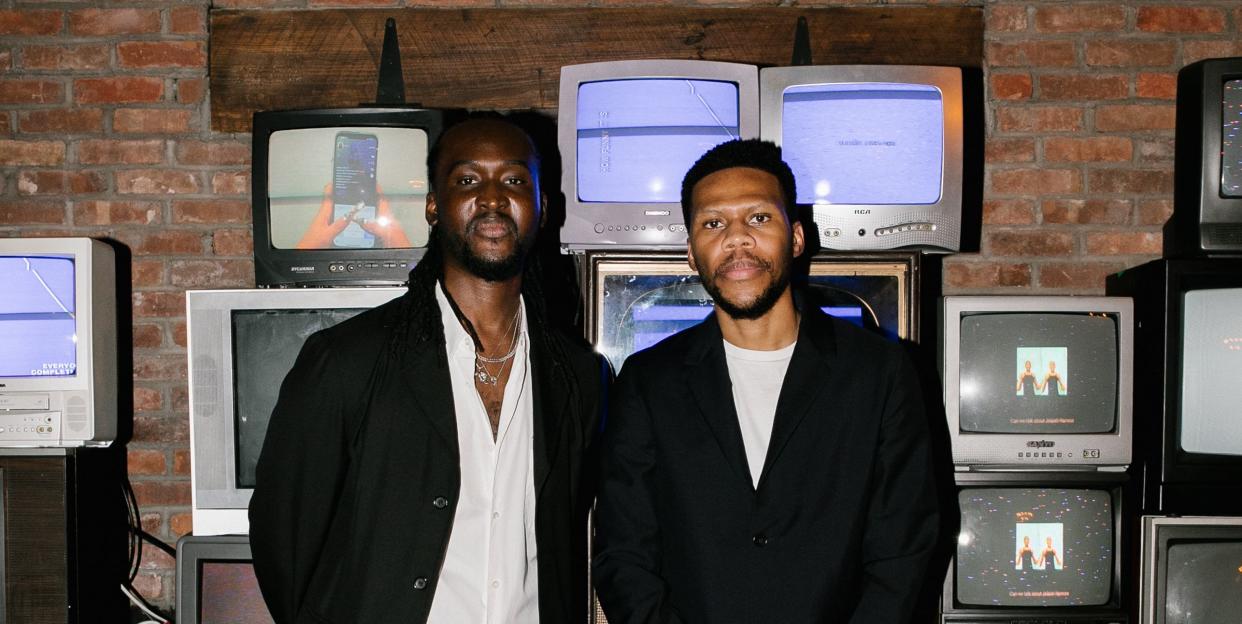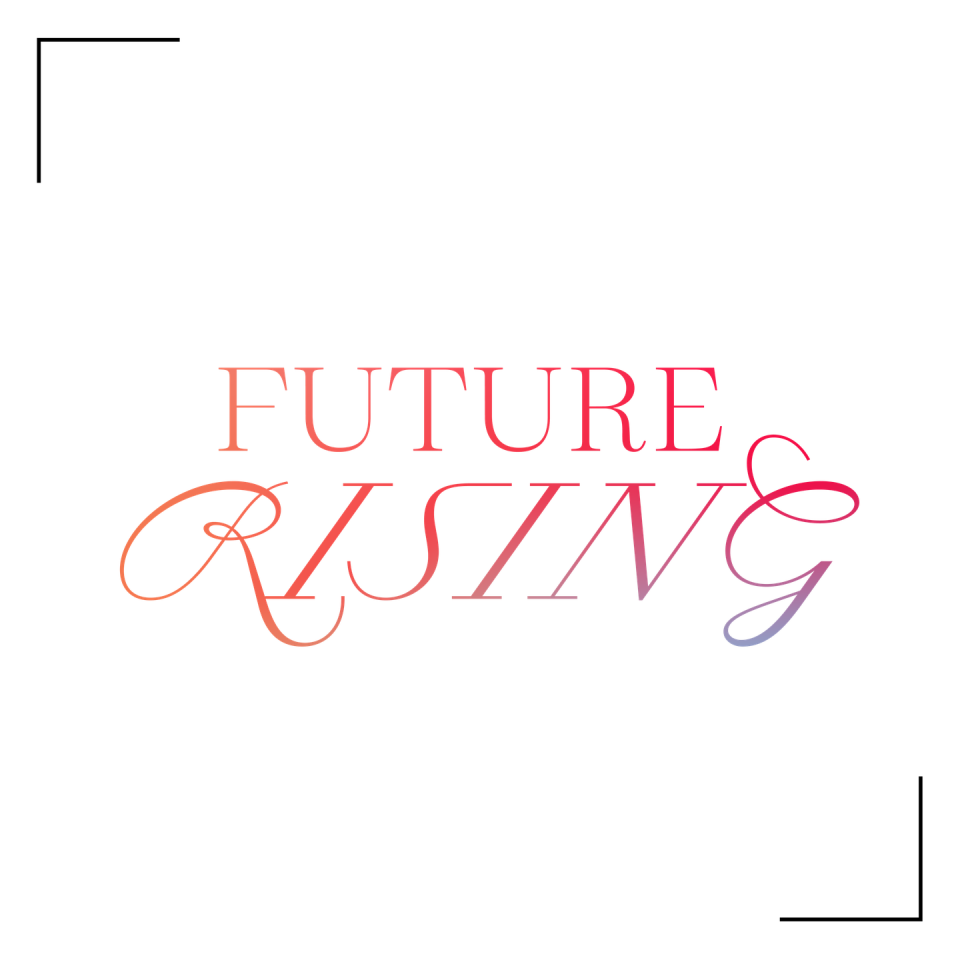The Start-up Funding the Future of Black Creativity

“Black creativity is the most popular form of creativity worldwide,” says Akin Adebowale, cofounder of Blacktag, a global platform for Black creators, “and we want to own our stuff. We understand the value of it.”
That concept—that Black artists should be fairly (and richly) compensated for the art they make—is the foundation that undergirds Blacktag, an ambitious project launched by Adebowale and Ousman Sahko Sow last fall. Both founders made their careers at the intersection of creativity and tech: Sow worked in advertising and content creation for Google, among other places, while Adebowale spent time in the music industry (for artists like Drake and Kanye West) and in fashion. The two were fluent in the language of digital creativity, and what they saw, over and over, was that producing content online was great for Black artists in terms of visibility, but it didn’t reward them financially—at least not in comparison to their non-Black counterparts.
So they launched Blacktag to do nothing less than revolutionize the creator economy. The original concept was a streaming platform, but it has now evolved into a technological “ecosystem” that includes an NFT platform called Blacktag.xyz. (The brand has even developed its own cryptocurrency, Blackrose, or BRS.) Recently, Blacktag teamed up with Johnnie Walker to launch a creator grant program that will award five finalists $1,000 to create custom content. And it has a partnership roster of prominent Black entertainers that includes Janelle Monáe, Common, and Issa Rae—all slated to contribute original content to Blacktag Studio.
In other words, it’s been quite a year. Sow and Adebowale say they haven’t completely abandoned the idea of streaming, but they’ve learned that it requires a bit more development and experimentation. Their priority has shifted from social capital to financial capital—two concepts that don’t always go hand in hand for Black creators. Most of the money made by creatives goes to media platforms, but Blacktag wants to be sure that capital goes into the creators’ pockets, and it’s looking to Web3 to correct the disparity.
“These are people within our community who we believe shape and represent the future of content consumption at a mass scale,” says Jasmine Cogdell, VP of marketing at Blacktag. “They influence the influencers. They are the drivers of global pop culture, but they continue to be gatekept because conventional channels don’t know how to address them, don’t know how to work with them, and frankly don’t have a space for them at a mass scale. So for us, we wanted to be able to be a representation, at a larger scale, of the nuances of Blackness.”
Harper’s Bazaar spoke to Sow and Adebowale about economic empowerment, tapping into blockchain, and the current state of Black creativity ahead of their summer rollout.
What’s it been like since you launched Blacktag last fall?
Adebowale: Last year for us was mainly around cultivating this community of creators, no matter what sort of technology we served them—whether it’s a streaming app that we built and we served them in October of last year or whether it’s blockchain, NFTs, or cryptocurrencies. It was about building that creator base and building that brand name, which is important. It’s always tough getting out there as a differentiator. Also learning, which is a big part, you know? Putting something out.
We did a closed beta with the streaming app and saw what creators were asking for, we saw what audiences were asking for, and we even saw what brands were asking for. And so we are constantly iterating to be able to serve that purpose more effectively. So, where we are today is taking that creative database and creator platform and serving them with Web3 and blockchain and this new technology that can amplify our mission and amplify our community.
What did you learn from your experiment with streaming?
Sow: We gleaned so much insight from creators and audiences alike: support systems they lacked, what they needed to succeed, what kind of content audiences enjoyed. But ultimately what we realized was that we needed to get to the foundational core of what was lacking, and that was technologies. We wanted to get at the root of how we were going to help creators advance their equity gaps, and that was through integrating blockchain and expanding our suite of products and services.
Why blockchain?
Adebowale: [It offers] a new model for closing the economic gap for creators—decentralized from oppressive institutions, primed for new revenue streams, centered on community. Leveraging blockchain tech to activate fans gives creators the ability to diversify their revenue. It lets them fund their artistry and connect directly with fans without the middleman and own their IP.
What would you say to other entrepreneurs who ask, “How do you know when to pivot?”
Sow: Don’t ever see change as a mistake. Learning in a business is critical. Gathering data, information, and market insights and pivoting is a sign of smart business leadership. Use those opportunities as learning moments.
Blacktag has been described as a platform that addresses a space in the market that is often overlooked by brands: “alternative Black content.” How does that differ from “mainstream Black content”?
Adebowale: We have a lot of dialogue in our 14-person office in regard to this! Because “alternative” sometimes isn’t as well-received by artists as “mainstream” is, I think the key word is “progressive” all around. This idea of, like, progressive content, progressive art, things that represent not only how unique something looks or sounds but also what it’s doing or where it’s from. This idea of building a platform that’s international, not just domestic. Or building a platform that sees the beauty in all age ranges, not just in a certain generation. Content and art that have a voice, and artists that have voices for change—all of this, collectively, to us is progressive.
In your experience in working and creating in this space, how would you describe some of the challenges Black creators face, as opposed to non-Black creators?
Adebowale: I mean, it’s everywhere, right? I would describe it as a reflection of what’s going on in the general population. The gap between the annual income of Black families versus non-Black families is atrocious. I don’t even want to get started on the technological barriers and the idea of Black people being the lead adopters of new tech, new multibillion- and even sometimes trillion-dollar products, but never being the creators and the builders of that. We’re not really benefiting from that. We make Black Twitter, but we didn’t create Twitter.
Sow: That also translates to the executives at studios who may not understand the stories that are being told. So how can they see deals and try to find artists to support those stories? It’s important to have a place that can celebrate creators and give them the opportunities to have their stories be told. We’re really just making sure we’re pushing forward the culture. And who’s behind it is essentially Black folks.
What do you see as the future when it comes to Black creatives and the creative economy?
Adebowale: Our hope is that Black creators are being paid the same as their white counterparts. That they’re able to create without worrying about whether their work will be stolen or undervalued. That there’s so much information publicly available to them that no one can take advantage of them. That Black contributions to society are valued as they are. Culture shifting.
How would you describe the current state of Black creativity?
Adebowale: The current state of Black creativity is still beautiful and thriving. It’s still fresh, and it’s still leading the way around the world, but with an added sense of ownership and economic empowerment.
Sow: I think creators have become more able to carry their equity as sort of a walking brand. I think Black creators have more leverage to state what it is that they actually want. If a brand, platform, or company wants to partner with them, they actually hold the power. That’s what we’re trying to inform our creators of. It’s not just about cutting a check; it’s about ownership. Black creators are viscerally aware of the brands that just want them to be a partner versus the brands who really care about their growth as a creator. I think the creators that come to us understand that we’re much more than just a check; we’re here to actually fill the gap and help them achieve sustainable cash flows.
What did it mean for Blacktag to be backed by such a massive investment?
Adebowale: To be backed by all of our investors was really an honor. A lot of our peers have been backed with a lot more for doing a lot less, or somewhat the same. It goes back to that conversation around disparity. It’s Black people having to do something 10 times better than our peers to gain the same thing. And mind you, we’re very grateful and very appreciative of the ones who are taking chances on us, but we still understand the disparity. And we understand that in order to build what we need to build, we need to raise and do beyond what our peers are doing for the general market. And so that’s a constant fight all the time. A great fact to know is that less than 2 percent of venture capital goes to Black-founded start-ups.
Sow: And that is up from 1 percent over 2020 because of the George Floyd era, which is still not even a drop in the bucket in terms of Black founders being able to build Black technology.
What advice can you give to the burgeoning class of Black creators?
Sow: The first deal is probably not the best! Make a counteroffer.
Adebowale: Know your value; it’s usually a lot more than what you’re presented. Be free to express yourself and be yourself, because that genuine self is what has created massive wealth for the world and drives culture. Understanding yourself has value.
This interview has been edited and condensed for clarity.

This story was created as part of Future Rising in partnership with Lexus. Future Rising is a series running across Hearst Magazines to celebrate the profound impact of Black culture on American life, and to spotlight some of the most dynamic voices of our time. Go to oprahdaily.com/futurerising for the complete portfolio.
You Might Also Like

